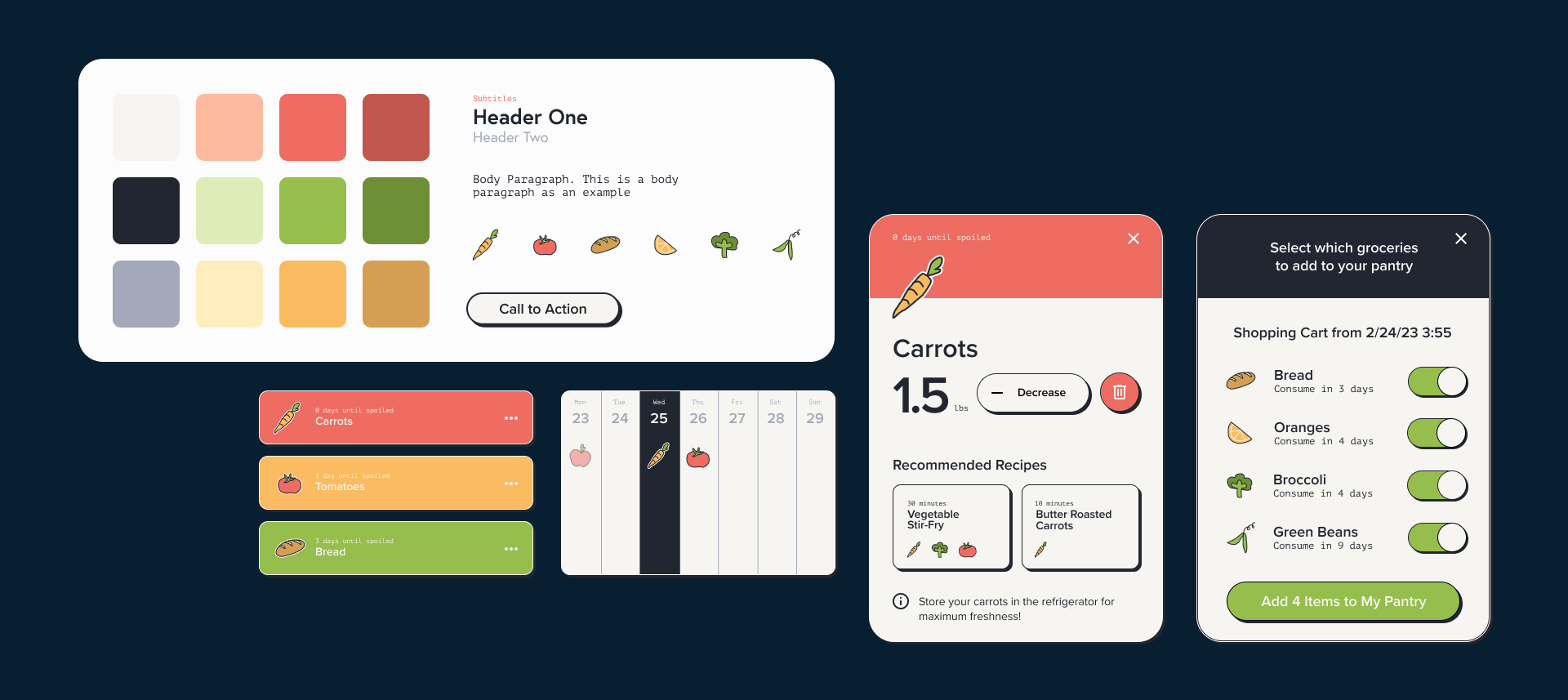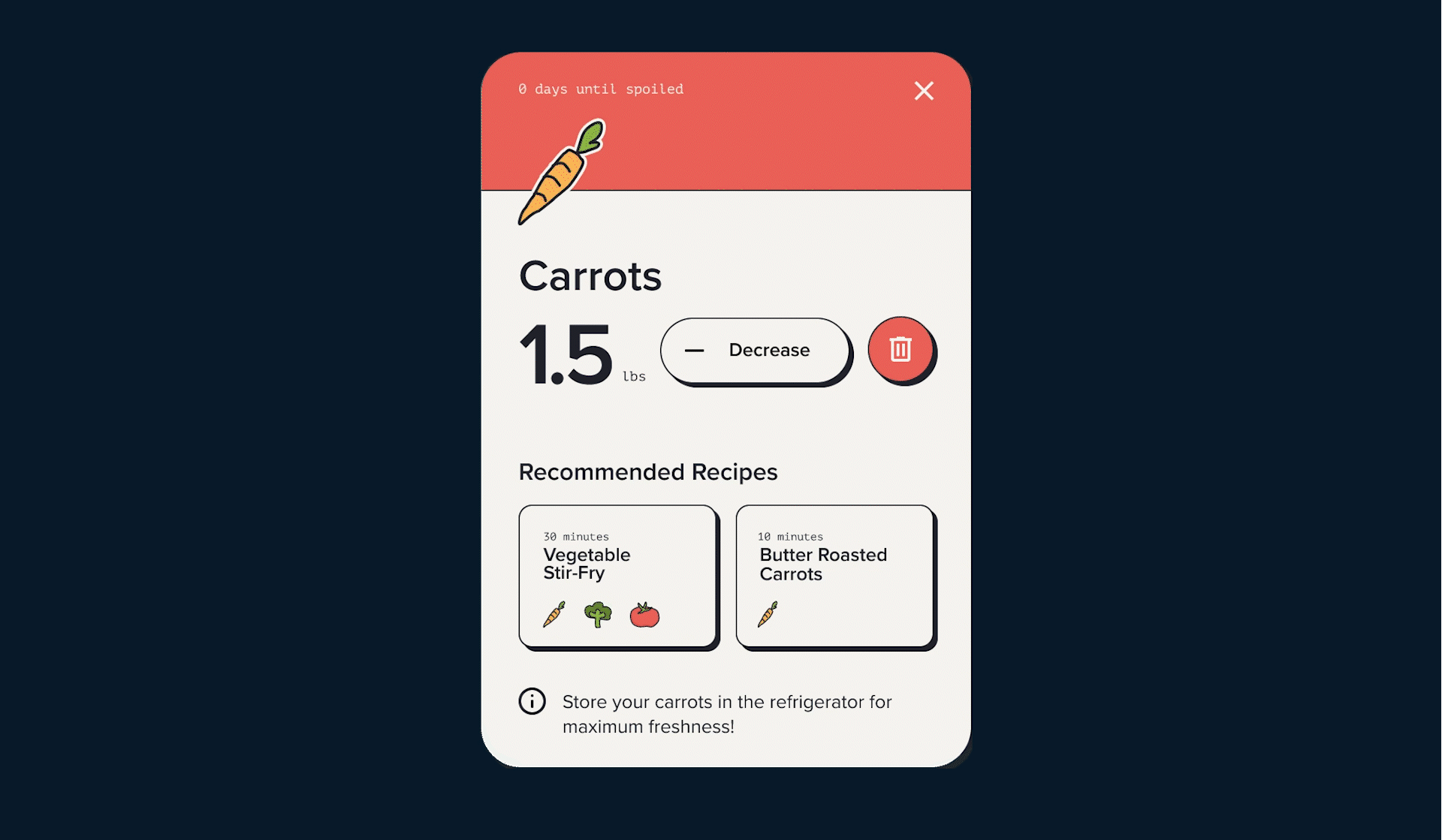
-
Waste Not Want Not
Experience Design
-
Catching young people up with life skills that used to only come with age.
-
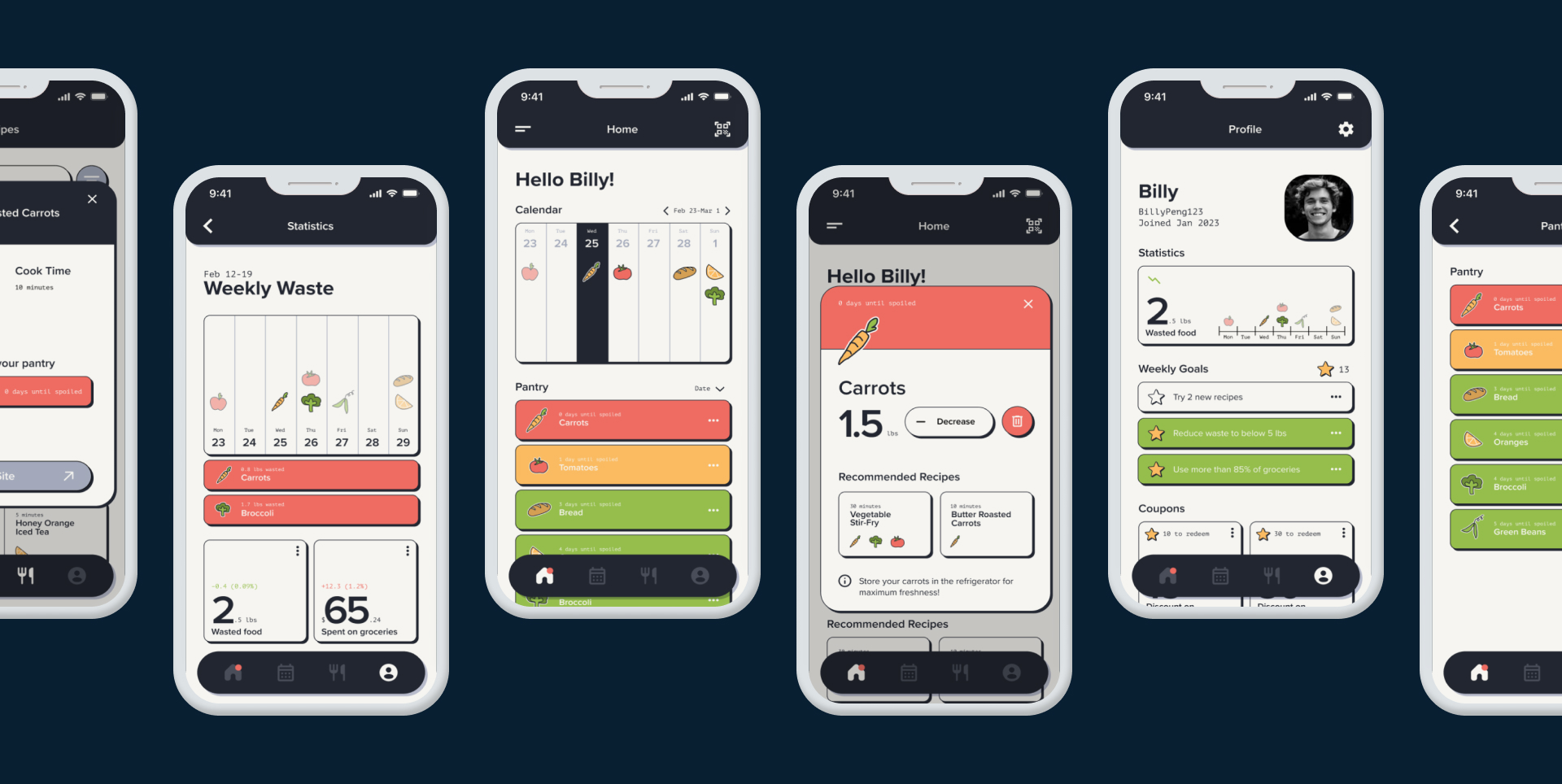
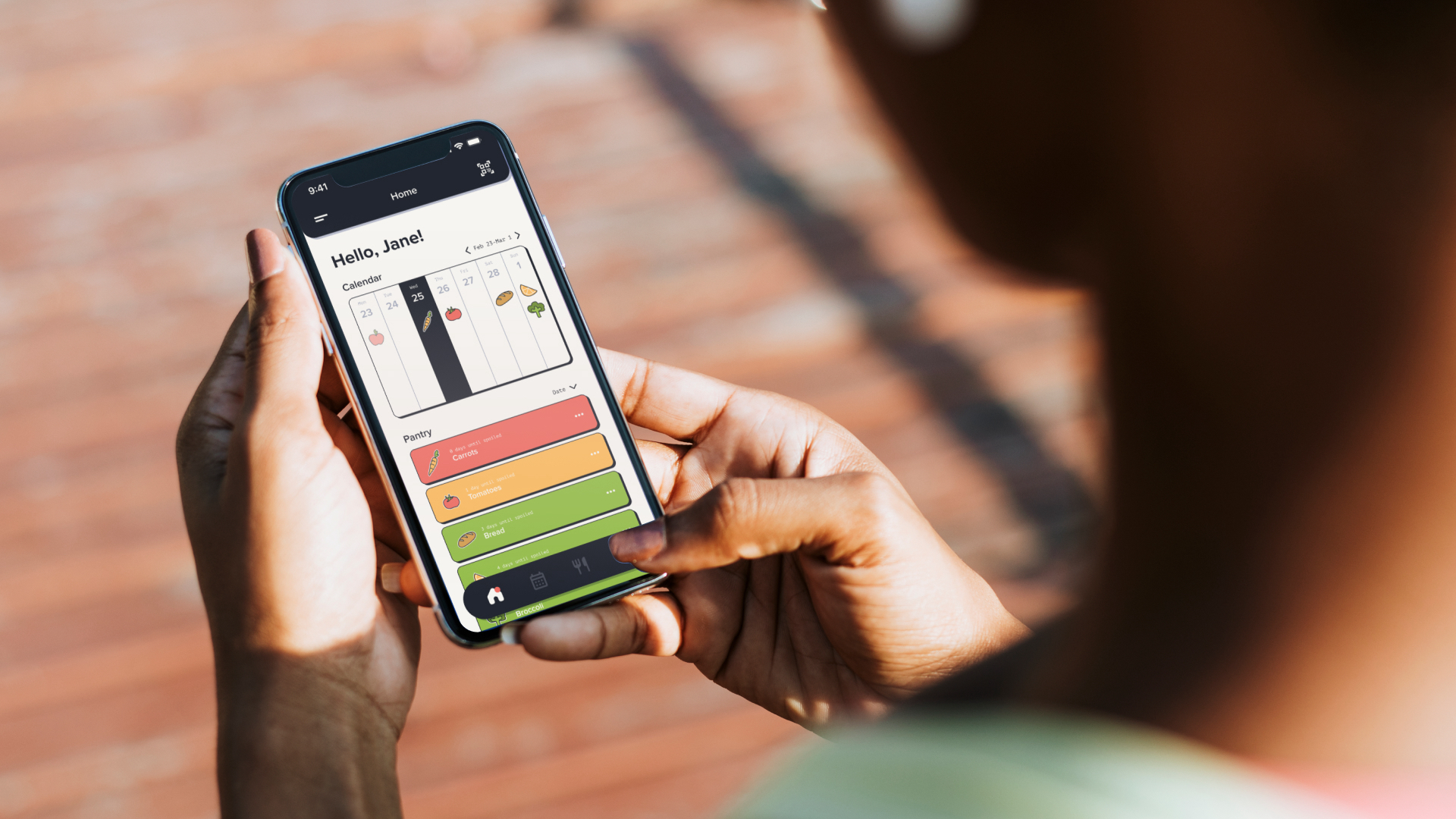
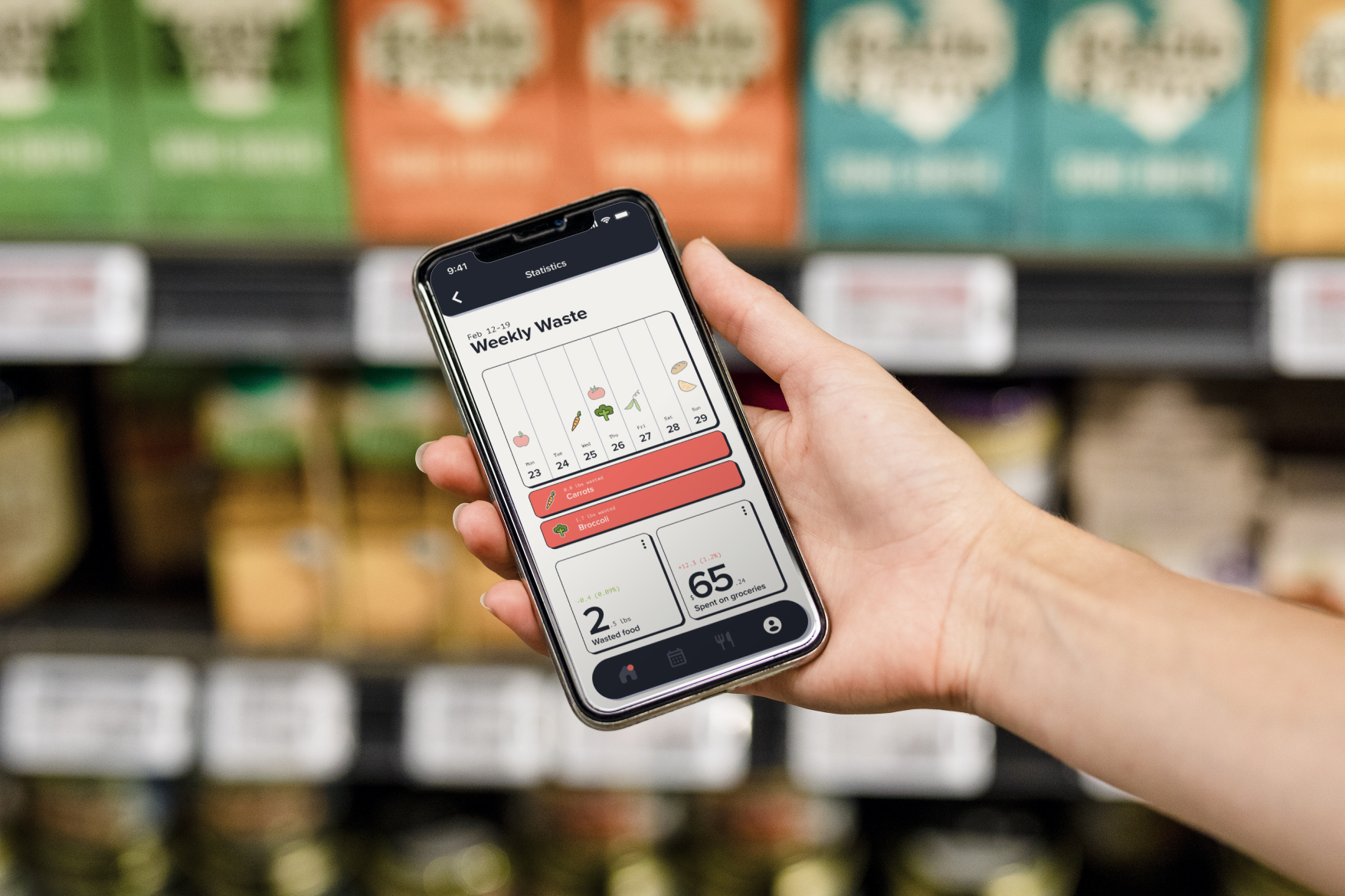
-
Waste Not Want Not is an app concept design aimed at helping young people manage grocery intake and food waste. With bold, bright, food-inspired colors and fun, tactile interaction, this product both gamifies and creates excitement around the usage of groceries, while also addressing common pain points in the grocery-shopping process.
-
Time
Role
Team -
1 week
Designer
Jin Peng -
